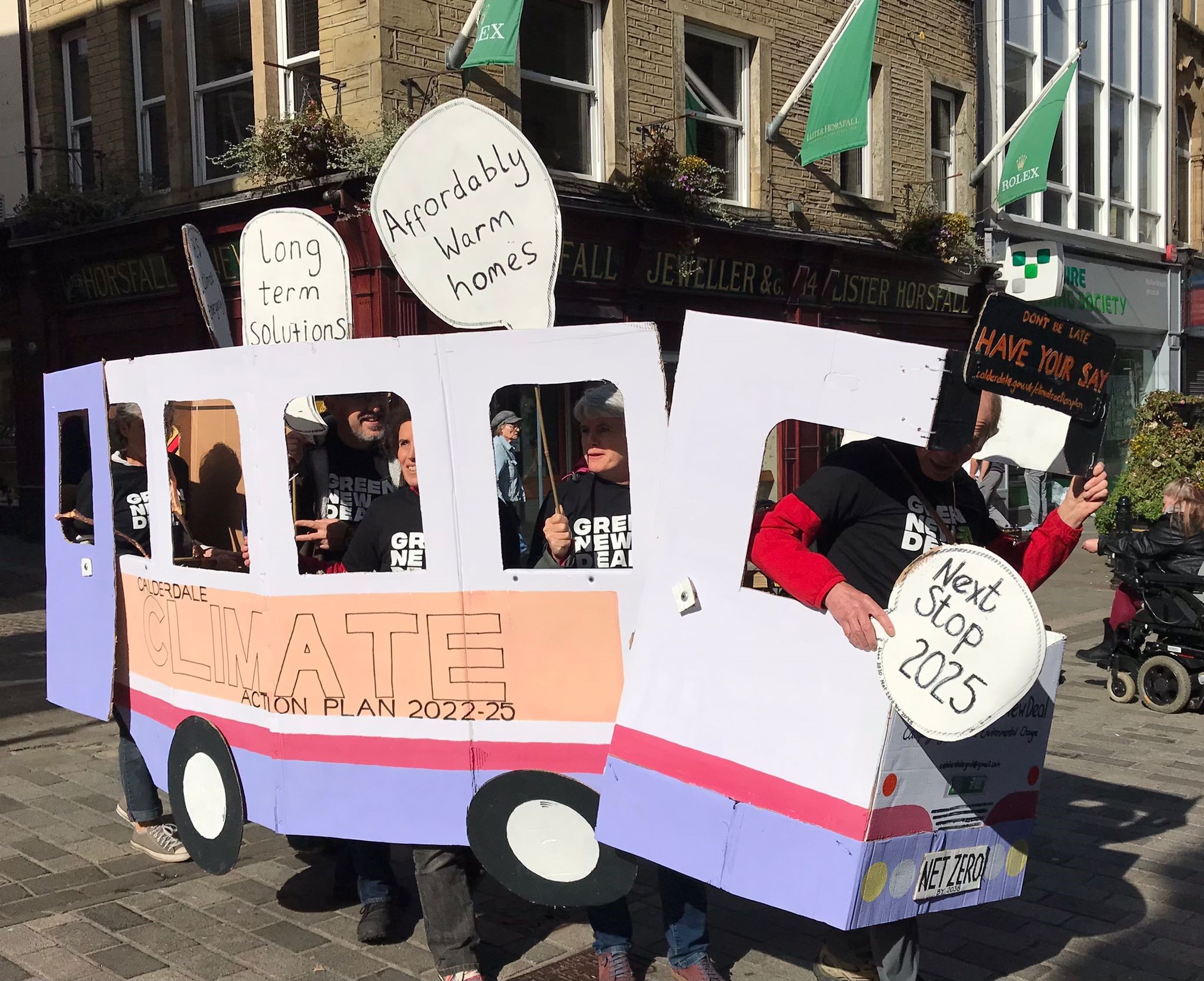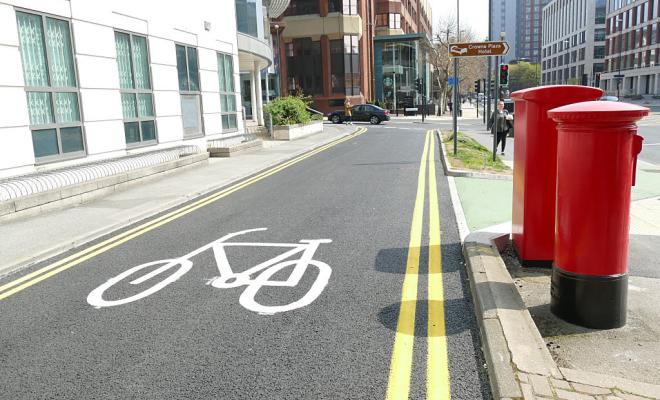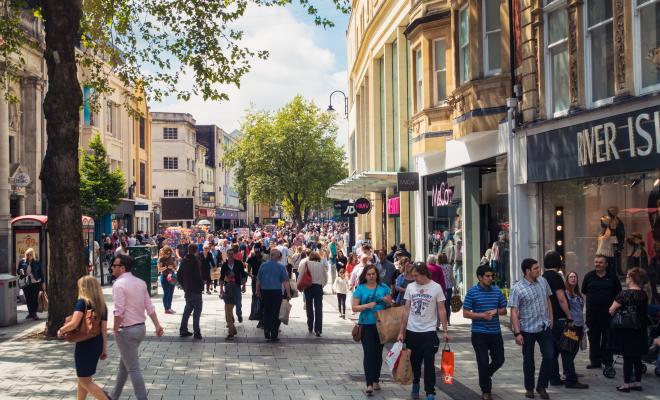25 Sep 2024
Councils, climate and decision making
Councils make lots of decisions that have an impact on climate emissions and nature. They have a significant amount of freedom in how they make these decisions and who they involve. For example, they can choose whether to make decisions behind closed doors with very little public engagement, or whether to use more participatory approaches that make sure the voices of the most disadvantaged communities are heard.
Delivering reductions in greenhouse gases isn’t currently a legal requirement for councils, but we think it should be. Until that happens, councillors can still require that all decisions are informed by an analysis of whether they’d help or hinder meeting climate, air pollution or nature plans. For example, proposals for new housing developments should identify the potential impact the new homes would have on climate and nature, but also whether the proposed location would force people to use cars to get to work or access services. With this information, councillors can make better-informed decisions.
The next step is to align all council statutory and non-statutory plans, policies and guidance with respective carbon reduction pathways and nature restoration plans, including areas such as procurement and infrastructure development. Councils produce numerous strategies and plans, some of which are legally required (for example a Local Plan that maps out how the area can develop over time, such as where houses or renewable energy can be built) and some of which aren’t legally required (for example a tree strategy). Councils also have procurement strategies and guidelines. All of these plans and strategies should be developed with the climate and nature crises in mind, but too often they aren’t.
Committed senior staff and councillors are needed for climate action to be at the core of council decision making, so councils should designate a councillor at cabinet level and a lead officer as Climate and Nature Champions who are required to report to the public on progress in meeting climate change and nature targets. To extend the commitment beyond senior staff, staff training across the whole council will help ensure that climate is considered in all decision making. Some councils are already making progress on this by ensuring all staff partake in carbon literacy training.
The target
Councils need to show ambition on a par with the climate and cost-of-living crises. With existing resourcing and powers, a reasonable target for councils to aim for is:
To ensure that climate and nature restoration goals are front and centre in all decision making and investments, and that inclusive engagement with citizens ensures that the changes made are sustainable.
Challenges
If goals are long-term, councils run the risk of delaying urgent action until a later date. The Climate Change Committee’s (CCC) sixth carbon budget is very clear that action over the next 10 years, including from local authorities, is vital to meeting net zero by 2050. This is why councils should set interim and measurable targets to develop a green economy, achieve net zero and restore nature. Creating smaller steps along the journey, for example yearly targets, ensures progress is made. Researchers at the Tyndall Centre in Manchester University have suggested annual reduction targets for every council across the country.
Reducing carbon emissions will also mean making decisions that aren’t always popular with everyone, such as traffic restrictions. To prevent a vocal minority from blocking progress, and to ensure that decisions help those most impacted by climate change, councils should use innovative decision-making processes (such as representative citizens’ assemblies, citizens’ juries, participatory mapping and budgeting etc) to ensure all voices are properly heard.
However, setting up and organising citizens’ assemblies and juries can be expensive, so they’re not suitable for all decision making. Councils should review and improve how they involve citizens in all their existing decision-making processes. Improving local democracy doesn’t just mean opening up the decision-making process for issues the council wants to work on, but also allowing others to introduce their own issues for debate and decision. Local campaign groups must have the power to ensure councils don’t ignore important issues.
Councils leading the way
Some councils are already making strides to improve their decision making, ensuring it helps rather than hinders their goals to tackle climate change and restore nature, and making sure they listen to community voices. Share these examples with your council using this template email and help inspire them to take action.
Cornwall Council has created a Development and Decision Wheel. The wheel helps to show how projects and decisions will affect the environment and people both positively and negatively, and helps to ensure that climate change is considered in key decisions.
Lewes District Council’s climate change and sustainability strategy sets measurable goals to guide climate action up until 2030, with interim targets also defined for 2025 and earlier. The goals set out a clear challenge for the council and local area to work towards and provide a benchmark for performance reporting.
Cotswold District Council appointed climate champions to drive more progress on climate goals. It’s seen a change of culture as a result, with climate change and ecological impacts now considered in every report, in a similar manner to impacts on equality and finances. Already this has influenced decisions to cancel a huge new car park, develop a green buildings toolkit, and go ahead with local climate bonds to raise money for climate action.
Devon County Council initiated a Youth Parliament as part of its process for developing a carbon plan. Blaenau Gwent set up a citizens’ assembly which came up with 5 key recommendations. Now the council says that when considering anything climate-related, elected members and officers always first refer back to the assembly’s recommendations. Meanwhile 12 councils took part in a pilot project called The Strategy Room, which tested using a more creative and immersive participative approach to tackling touch decisions on climate action.
Climate commissions are another way to bring in a range of partners and citizens. The first climate commission was established in Leeds in 2017, with more than 20 partner organisations brought in from across the public, private and voluntary sectors. The Big Leeds Climate Conversation consultation, held in partnership with the Leeds Climate Commission, combined focus groups, questionnaires, face-to-face events and a citizens’ jury to gather a diverse range of views on how the city should respond to climate change.
Learn from others
Some groups have already been working with their councils to improve decision-making approaches.
Climate Action Durham has set an excellent example of how members of the local community can take a lead in ensuring citizens are involved in council decision-making. In July 2022 it organised a Citizens’ Forum to discuss Durham County Council’s Climate Emergency Response Plan. The forum included a presentation from a local councillor and breakout group discussions on topics including transport and the decarbonisation of heat and electricity. This is a great example of how local communities can help and advise their councils in the implementation of climate action, and also hold them to account on delivery.
Calderdale Green New Deal is using Calderdale Council's climate action partnership to influence action in the area. It's managed to gain seats on 5 of 6 themed working groups and has been able to win some changes in the draft plans. However, this doesn't mean the group has stopped public campaigning. It's keeping up pressure on the council to do more and has been using a walking bus to engage the public.
Convince your council
The best way to convince your council to take action is to show that it’s what lots of people in the community want. The more people involved in your campaign, the more likely your council is to listen. You should make your campaign diverse, stronger and more impactful by building alliances with others.
Councils are also more amenable to introducing schemes that have a wide array of benefits, as it generally means they’re more cost effective, so be sure to tell your council about them and encourage it to consider them in its decision-making processes. For example, Lewes District Council’s target setting (see above) didn’t just focus on emissions but also included issues related to health and cost-of-living, such as the average SAP rating (energy performance) of council housing stock. Meanwhile Cornwall Council (see above) was keen to ensure that its decision-making tool considered social justice alongside climate impacts.
Funding and powers
Action by central government will empower councils to do more to tackle the climate crisis. Councils can and are acting now, but it’s hard to find a council able to act across all the areas it needs to and at the scale and pace commensurate to the climate and ecological emergencies. That’s why they need additional powers and resources.
The CCC has also recommended that the government considers introducing a duty on councils to deliver climate action plans, backed by additional powers and funding to support councils. Councils with sufficient agency and finances are better able to focus on issues beyond just those that they’re required to deliver by statutory duty. They’re also more able to make the right decisions when they’re challenged by third parties, for example developers, who want the climate crisis to be downplayed. However, this duty on councils will only work if it’s properly enforced and if councils are adequately resourced and empowered to deliver it. Such a duty is meaningless if national policy fails to support or even contradicts what councils are trying to do.
In England for example, national planning policy steers local plan making and planning decisions. Although reductions in greenhouse gas emissions is a key objective, the national policy lacks the specific requirements to ensure this aspiration is effectively implemented, and it contains contradictions as well. That means practice from council to council varies hugely, and in some cases ambitious local policies have been overturned by the national Planning Inspectorate. The planning system needs to be reformed so that every decision has to be in line with climate change targets, and national planning policy needs to be radically revised to enable all councils to secure high-quality, low-carbon development.
The lack of a duty on climate action means that local government’s role in delivering on national climate targets isn’t always clearly understood. Conservative MP Chris Skidmore, who led a review of net zero for the UK government, published a report called The Future is Local. In this report, he and Tees Valley Mayor Ben Houchen called for a Local Net Zero Charter to agree responsibilities and enhance partnerships between the UK government, devolved governments and regional, city and local authorities.
Friends of the Earth has joined local government organisations, academics and other NGOs in setting out a Blueprint of what’s needed from national government to support councils in key policy areas, including planning, energy, waste and consumption. The coalition has assessed how the government is doing so far in its progress tracker. Be sure to ask your council to sign up to the Blueprint if it hasn’t done so already.
Helpful resources
Find out what progress your local area has already made on a range of climate and nature issues with our handy data tool, “Near you”.
Watch our training video and learn how your council can embed climate, nature and inclusive engagement in its decision making:
Find out how you can build a strong campaign to push your council to take ambitious action in this area.
Get to grips with how your council works.
Read more examples of best practice by councils.
Find out how your council is doing by looking at its Council Climate Action Scorecard, created by Climate Emergency UK.
Find out more about citizens’ assemblies and citizens’ juries.
Any references to national policy in this guide relate to policy under the previous government and reflect the policy context at the time it was written.




